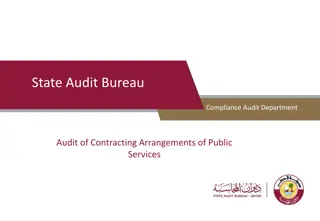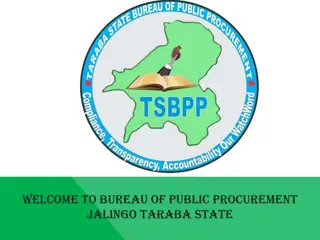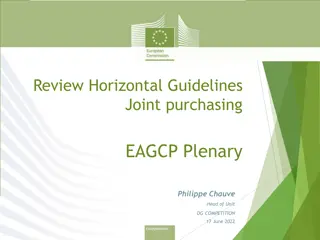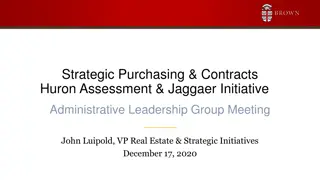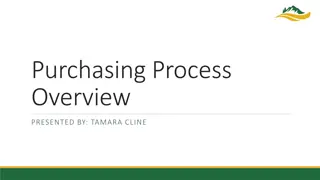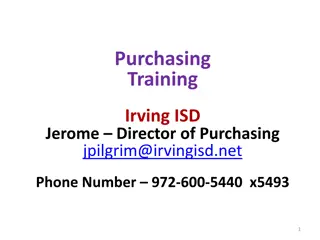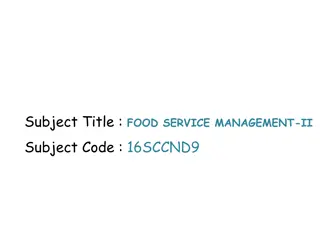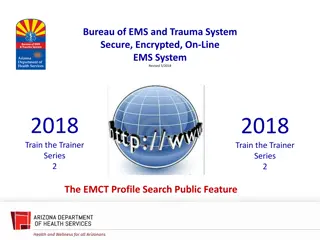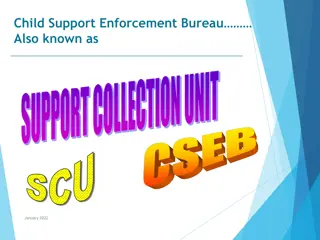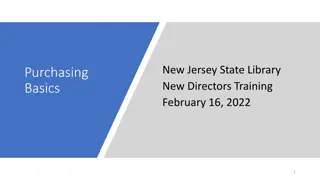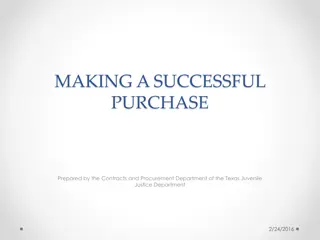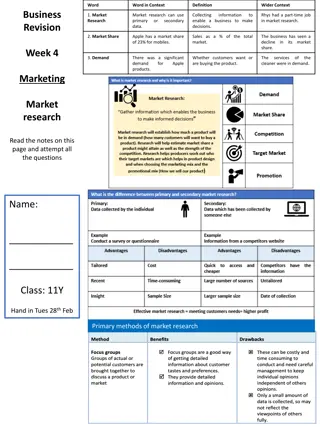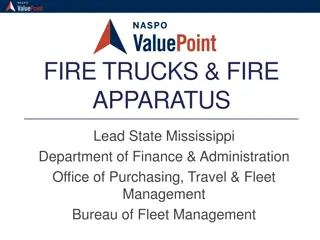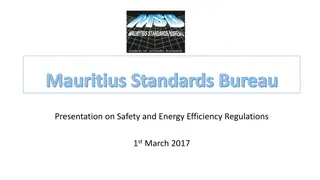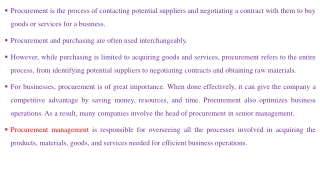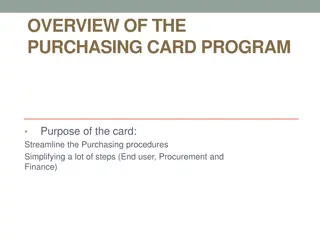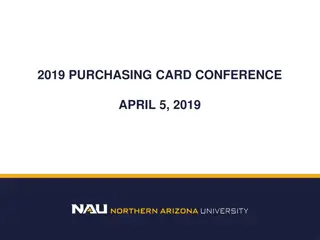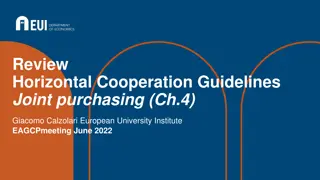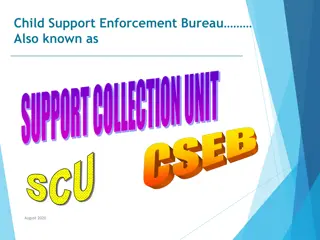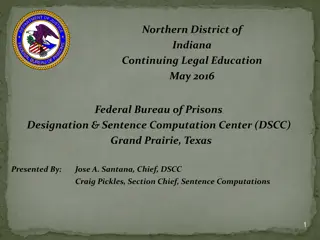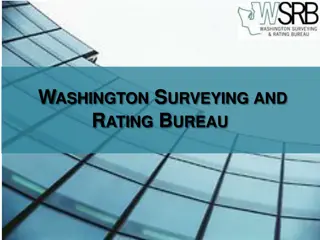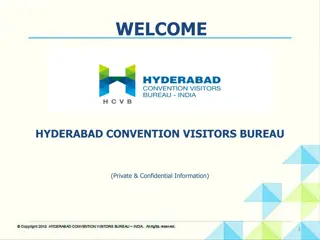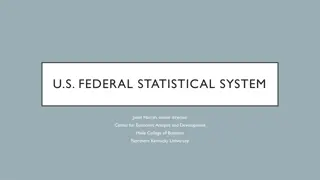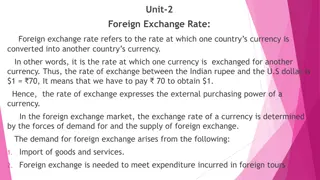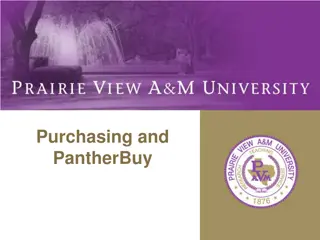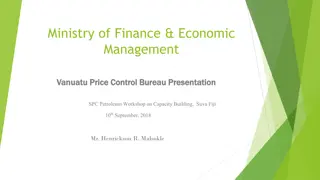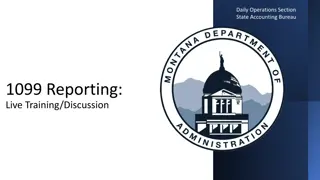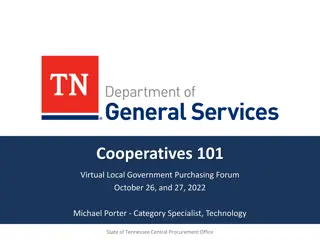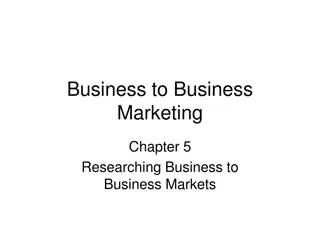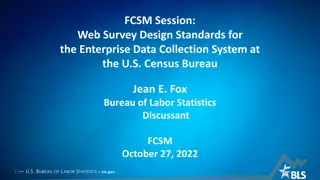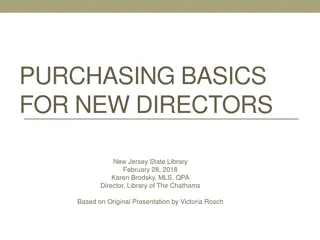Comprehensive Guide to Market Research for State Purchasing Bureau
This detailed guide provides essential information for conducting market research by the Nebraska State Purchasing Bureau. It covers the importance of market analysis, the steps before developing specifications, and guidelines for initiating market research. The guide also includes insights on aligning goals with the research cycle, necessary resources for completing a research plan, and factors to consider for commercial item availability.
Download Presentation

Please find below an Image/Link to download the presentation.
The content on the website is provided AS IS for your information and personal use only. It may not be sold, licensed, or shared on other websites without obtaining consent from the author. Download presentation by click this link. If you encounter any issues during the download, it is possible that the publisher has removed the file from their server.
E N D
Presentation Transcript
Nebraska State Purchasing Bureau Nebraska State Purchasing Bureau
Provides important information to identify and analyze the market Able to determine market size Determine available competition (supply and demand) Able to determine which products and services are available (trends)
Before developing specifications Before soliciting bids When adequate information is not available The extent of market research and analysis varies depending upon the urgency, value, and complexity.
Before beginning Market Research: Identify the purpose of the market research Identify a minimum of three (3) goals Identify the State s buying policy (bidding thresholds) Identify the role of research within the acquisition period Include potential suppliers, advertise on SPB website, newspapers (other periodicals) Conduct spend analysis
Identify how your goals align to market research cycle Identify how the market research applies to your agency/project
Five resources or actions necessary to complete your market research plan Understanding the Department s goals Subject Matter Experts, possibly a consultant to review current processes and structure with recommendations on changes necessary for the department to be successful Conduct a risk analysis to determine implications if your agency decides not to do the project Financial Analysis to determine availability of funds Determining limitations within the agency or supplier market
Availability of a commercial item able to meet the State s needs as is, or with minor modifications Common Practices Warranties, maintenance, packaging, etc. Availability of items that are recycled or energy efficient Distribution and support capabilities of potential vendors Size and status of potential sources
Customary practices regarding customizing, modifying or tailoring items to meet customer needs and associated costs
Market information is needed for cost and price analysis in: Determining whether the requirement can be met by a commercial item, and can be procured, and Reviewing proposed requirements to ensure they include all acceptable products/services available in the market Determining when the best time to buy the product/service and establishing delivery schedule(s) Potential Sources available Determining whether it s best to buy or lease Are there price break points?
Request for Information process Reviewing acquisition history Trade and professional associations Testing Labs Technical Personnel, including in-house experts Catalogs On-line research Contacting Other State s
Issue a Request for Information An RFI is a general invitation to vendors requesting information for a potential future solicitation Always be fair and equitable in your treatment of vendors The RFI is used as a research and information gathering tool for preparation of a solicitation. An RFI is helpful when an agency is seeking to procure a new service or to get an estimated budget for planning purposes An RFI is non-binding Ability to bring in vendors for oral interviews and/or demonstrations (interactive, very little restriction on agencies in regards to questions, comments) Do not perform market research with only one vendor
Agency Prepares a General Statement of the type of goods/service needed Potential Suppliers provide information and advice so agencies can gather sufficient details for the RFP/ITB An RFI emphasizes the desire for fair and open competition once a formal solicitation is released
Reviewing Acquisition History Review prior bids Who has responded? Who have you purchased from previously? What were the acquisition costs?
Trade and professional associations NIGP NASPO Those specific to your agency Technical Personnel Specific to the product or service (Example: programmers for a specific program or dump trucks) Testing Labs If you are purchasing a piece of equipment, has there been testing done? What were the results?
Catalogs Industry specific catalogs available On-Line Research (Google, Bing, etc.) Other States Have other states procured the same or similar services or products?
Review the information Is the information relevant? Is it within agency budget? What are the risks? Has a risk analysis been completed based upon information received? Based on the information received, should the agency move forward with developing specifications?
Decision to Move Forward Develop specifications that are broad enough to allow for competition and able to meet agency needs. (Consider issuing a draft RFP or solicitation document for vendor comments/suggestions) Do Not write specifications specific to one product or service. Do not allow the vendor to write the solicitation document. The vendor will be prohibited from bidding and equal treatment of vendors is lost.


